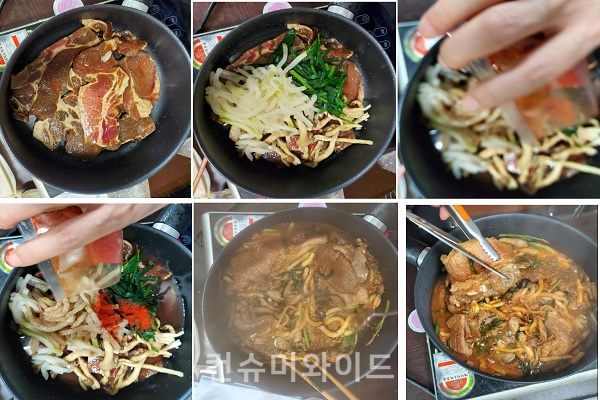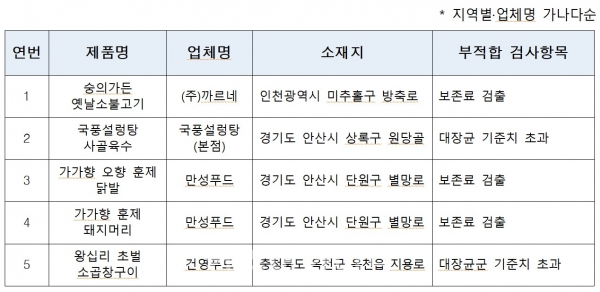
But the purchase needs to be made carefully. Sanitary inspection (from Ministry of Food and Drug Safety) failure check is necessary.
In addition, when purchasing, consumers have to check precisely including the 'the best used by date' /HMR cooking site (Photo: ConsumerwideDB/ Not relevant to this report.)
[Consumerwide_Jinil, Kang Reporter / Yohan, Bok Reporter] With a growing number of single families, and covid19, consumers who are enjoying the meal at home rather than in a restaurant are also increasing. There is a radical rise in home meal replacement (HMR). Followed by the National Statistical Office,
Single families took up 27.2% in 2015, and after that they continually increased to approach 33.5%, which is 7.1 million and 65788 people in 2021.
Followed by Korea Agro-Fisheries and Food Trade Corporation, the HMR market scale is estimated as 3.2 trillion in 2018, 4 trillion in 2020, and 5 trillion in 2022. This probably means that the HMR market has increased as the number of single families grows.
Even in HMR, purchase consumption-value is worthwhile. Considering a single family is cooking a Galbitang(short rip soup).
First of all, he got to purchase the rib at the meat corner of a store. In addition, he will prepare or purchase sauce and vegetables for the Galbitang. Purchasing the ingredients for only one meal isn't easy. This means waste. In order to wash the ingredients, he consumes water. For cooking a tasty Galbitang, he boils ingredients in the pot for a long time. Leftover ingredients are often thrown away. Not only time, but the waste of resources is a big part.
Hence, there are quite a number of consumption-value based consumers who prefer HMR, which involves light cooking such as boiling prepared ingredients or simply using a microwave. However, it seems to be that the HMR businesses aren't supporting the social consumption trend.
23 businesses were found to violate the livestock products sanitary control act as a result of inspections targetting HMR manufacturing businesses operated by local governments, which data has been announced by the Ministry of food and drug safety.
In addition, after examining 349 HMR products manufactured at the business place, a total of 5 cases were discovered to be uneatable, which case includes 3 preservative cases and 2 microorganism cases among 349 products that have completed examination till now. This probably means that business owners, having a neglectful attitude thinking 'plenty of consumption, so the way of manufacturing doesn't matter, as long as it makes money' are running the business without any shame.

The purchase of HMR is a consumption value. It can save time, resources and cash. But you shouldn't purchase blindly. Sanitary inspection (from Ministry of Food and Drug Safety) failure check is necessary. In addition, when purchasing, consumers have to check precisely including the 'the best used by date'.
For businesses, quality is a promise with consumers as well as ESG. Even if the product is convenient and tasty, there won't be a consumer who purchases a product made in an unhygienic environment. If a business cannot secure a quality, the future of HMR might be dark.
- [Reporter's Note] Smokeless "Dipping tobacco", why not in the domestic market?... Some see a low tax policy for "dipping tobacco" as worthwhile.
- [Reporter's note] Aspartame might be out of the market eventually, just like Parabens... We've got to check them out thoroughly concerning our body.
- [Reporter's Note] Time to wear masks again... Covid-19 pandemic in summer

